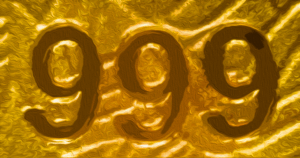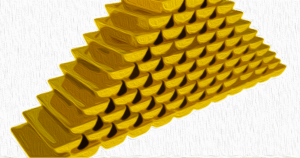
SEC Commissioner Hester Peirce criticizes agency for holding back spot bitcoin ETFs
SEC Commissioner Hester Peirce has expressed her disappointment with the delay in approving spot bitcoin exchange-traded funds (ETFs) by the U.S. Securities and Exchange Commission (SEC). In a statement, she criticized the agency's arbitrary and capricious treatment of applications, stating that it will not only harm their reputation in the crypto industry but also hinder their ability to effectively regulate the markets.
Approval of 11 spot bitcoin ETFs
Commissioner Peirce issued her statement following the approval of 11 spot bitcoin ETFs by the SEC. She described this as the end of an unnecessary but significant saga that has been going on for more than a decade. She mentioned that the Commission's approval of multiple applications by exchanges to list and trade spot bitcoin ETFs would have taken much longer without external intervention.
Commission's reluctance to allow spot bitcoin ETFs
Commissioner Peirce highlighted the fact that bitcoin-based products have been trading successfully under other regulatory regimes for years. She argued that the Commission should have taken comfort in the smooth trading of these products, even during periods of market stress and volatility. However, until now, the SEC had been steadfast in its unwillingness to allow spot bitcoin ETFs in the U.S. markets. This led retail investors to resort to less efficient means of gaining exposure to bitcoin in the securities markets.
Approval of bitcoin futures ETFs
While the SEC had reservations about spot bitcoin ETFs, it had no problem approving bitcoin futures ETFs. Commissioner Peirce acknowledged that these futures-based products are more complex and challenging to manage than spot products, resulting in higher costs for investors. She emphasized that the Commission's previous rejection of spot bitcoin ETFs was unjustified, and it took a court's intervention to challenge the agency's reasoning.
Commission's change of heart
Commissioner Peirce criticized the Commission for offering a weak explanation for its change of heart. She pointed out that in the past, the agency had rejected applications based on the immaturity of the bitcoin market and concerns about market manipulation. She stated that the Commission wasted a decade of opportunities to approve these products, applying a different standard compared to other commodity-based ETFs. Even now, the agency's approval comes with reluctance, as they continue to demand additional requirements not imposed on prior commodity-based ETFs.
Continued harm to the agency's reputation
Commissioner Peirce concluded by stating that the approval of spot bitcoin ETFs does not undo the harm caused by the agency's disparate treatment of these products. She warned that the arbitrary and capricious handling of applications in this area will continue to damage the SEC's reputation beyond the crypto industry. This diminished trust from the public will hinder the agency's ability to effectively regulate the markets.
What are your thoughts on SEC Commissioner Hester Peirce's concerns about spot bitcoin ETFs? Let us know in the comments section below.
Frequently Asked Questions
What type of IRA is used for precious metals?
Many financial institutions and employers offer an individual retirement account (IRA) as an investment option. Through an IRA, you may contribute money to an account that grows tax-deferred until withdrawn.
You can save taxes by setting up an IRA and then paying them off when you retire. This allows you to save more money today and pay less taxes tomorrow.
An IRA is a great investment because your earnings and contributions are tax-free. You can withdraw funds at any time. If you do withdraw the funds earlier than that, you will be subject to penalties.
After 50 you can still make contributions to your IRA. There is no penalty. If you choose to take withdrawals from your IRA during retirement, you'll owe income taxes and a 10% federal penalty.
Refunds received before the age of 591/2 are subject to a penalty of 5% from the IRS. Between the ages of 591/2 and 70 1/2, withdrawals are subject to a 3.4% IRS penal.
A 6.2% IRS penalty applies to withdrawals exceeding $10,000 per annum.
Are gold IRAs a good idea?
Purchase shares in mining companies to invest in precious metals like gold. To make money in investing in gold or other precious metals, such as silver, you should purchase shares in these companies.
However, there are two drawbacks to owning shares directly:
Holding on to your stock for too many years can lead you to losing money. Stocks that fall are less than their underlying asset (like silver) and can end up losing more money. This could mean that you lose money rather than making it.
Second, waiting for the market to recover before selling your gold holdings could result in you missing out on potential profits. Be patient and wait for the market's recovery before you make any profits from your gold holdings.
If you prefer to keep your investments apart from your finances, physical gold is still an option. An IRA in gold can diversify your portfolio and protect you against inflation.
Visit our website to find out more about investing in gold.
What are the three types of IRAs?
There are three main types of IRAs. There are three types of IRAs: Roth, Traditional, and SEP. Each has its own advantages and disadvantages. Each type will be covered in detail below.
Traditional Individual Retirement Accounts
A traditional IRA allows you to contribute pre-tax money to an account where you can defer taxes on contributions made now while earning interest. Once you retire, withdrawals from the account are tax-free.
Roth IRA
With a Roth IRA, you deposit after-tax dollars into an account, which means any earnings grow tax-free. You can also withdraw money from the account to retire your funds tax-free.
SEP IRA
This is similar in structure to a Roth IRA. However, employees will need to make additional contributions. The additional contributions are subject to tax, but earnings accrue tax-deferred. If you leave the company, you can convert the entire amount to a Roth IRA.
Statistics
- The IRS also allows American Eagle coins, even though they do not meet gold's 99.5% purity standard. (forbes.com)
- To qualify as IRA allowable precious metals and be accepted by STRATA, the following minimum fineness requirements must be met: Gold must be 99.5% pure, silver must be 99.9% pure, and platinum and palladium must both be 99.95% pure. (stratatrust.com)
- You can only purchase gold bars of at least 99.5% purity. (forbes.com)
- Depending on your financial situation, most experts recommend you invest no more than 5% to 10% of your retirement funds in precious metals. (forbes.com)
External Links
forbes.com
- Gold IRA – Add Sparkle to Your Retirement Nest Egg
- Understanding China's Evergrande Crisis – Forbes Advisor
takemetothesite.com
investopedia.com
en.wikipedia.org
How To
How to decide if a Gold IRA is right for you
Individual Retirement Accounts (IRA) are the most popular type. Individual Retirement Accounts (IRAs) are available through financial planners, banks, mutual funds and employers. The IRS allows individuals up to $5,000 in annual contributions without tax consequences. This amount can be contributed to any IRA, regardless of your age. There are limits to how much money you may put into certain IRAs. For example, you cannot contribute to a Roth IRA unless you're at least 59 1/2 years old. Contributions must be made by those under 50 years old. Some people may also be eligible for matching contributions if they work for their employer.
There are two types primarily of IRAs. A traditional IRA lets you invest in stocks, bonds, real estate, and other investments, while a Roth IRA lets you invest only in after-tax dollars. Roth IRA contributions aren't subject to tax on the amount they are received, but Roth IRA withdrawals will be. Some people prefer to combine these two accounts. Each type of IRA comes with its own pros and cons. What should you look at before deciding which type is best for you? Here are three things to keep in mind:
Traditional IRA Pros
- Companies have different options when it comes to contribution options
- Employer match possible
- You can save up to $5,000 per person
- Tax-deferred growth until withdrawal
- Limitations may apply based on income levels
- Maximum annual contribution is $5,500 ($6,500 for married couples filing jointly).
- The minimum investment required is $1,000
- After you turn 70 1/2, you can begin receiving mandatory distributions
- For an IRA to be opened, you must have at least five-years-old
- Transfer assets between IRAs is not possible
Roth IRA pros:
- Contributions are tax-free
- Earnings can grow tax-free
- There are no minimum distribution requirements
- Only stocks, bonds, mutual funds are available as investment options.
- There is no maximum allowed contribution
- Transfer assets between IRAs is possible without restrictions
- Open an IRA if you are 55 years or older
When opening a new IRA it's important to realize that not all companies offer identical IRAs. Some companies offer the option of a Roth IRA, while others provide a choice between a Roth IRA and a traditional IRA. Some will let you combine them. It is also important to note that different types IRAs will have different requirements. A Roth IRA does not have a minimum investment requirement. Traditional IRAs require a minimum of $1,000.
The Bottom Line
When you are choosing an IRA, it is crucial to consider whether you will pay taxes now or in the future. If you are retiring within ten year, a traditional IRA could be the right option. A Roth IRA may be a better choice for you. Either way, it's always a good idea to consult a professional about your retirement plans. It's important to have someone who is knowledgeable about the market and can suggest the best options for you.
—————————————————————————————————————————————————————————————-
Based on [POSTTITLE]
by [POSTAUTHOR]
Related posts:
 Concerns Mount Over Potential SEC Rejection of Spot Bitcoin ETFs, Analyst Weighs In
Concerns Mount Over Potential SEC Rejection of Spot Bitcoin ETFs, Analyst Weighs In
 Ark Invest CEO Cathie Wood Foresees Widespread Institutional Involvement in Bitcoin ETFs
Ark Invest CEO Cathie Wood Foresees Widespread Institutional Involvement in Bitcoin ETFs
 The SEC Sets Dec. 29 Deadline for Spot Bitcoin ETF Applicants
The SEC Sets Dec. 29 Deadline for Spot Bitcoin ETF Applicants
 Blackrock Urges SEC to Approve Spot Ethereum ETFs for the Protection of U.S. Investors
Blackrock Urges SEC to Approve Spot Ethereum ETFs for the Protection of U.S. Investors













